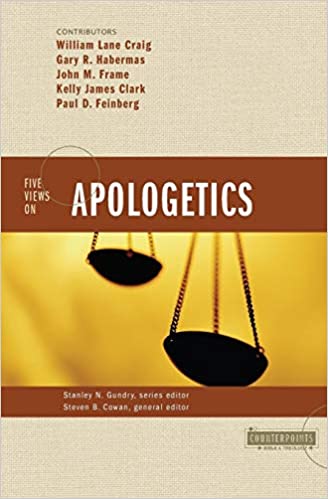
The goal of apologetics is to persuasively answer honest objections that keep people from faith in Jesus Christ. But of several apologetic approaches, which is most effective? Five Views on Apologetics examines the “how-to” of apologetics, putting five prominent views under the microscope: Classical, Evidential, Presuppositional, Reformed Epistemology, and Cumulative Case. Offering a forum for presentation, critique, and defense, this book allows the contributors for the different viewpoints to interact. Like no other book, Five Views on Apologetics lets you compare and contrast different ways of “doing” apologetics. Your own informed conclusions can then guide you as you meet the questions of a needy world with the claims of the gospel. The Counterpoints series provides a forum for comparison and critique of different views on issues important to Christians. Counterpoints books address two categories: Church Life and Bible and Theology. Complete your library with other books in the Counterpoints series.
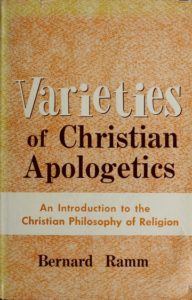
The author’s first volume in this field, Types of Apologetic Systems, served well as a textbook for the study of Christian apologetics, or more broadly, as an introduction to the Christian philosophy of religion. In response to the strong and continuing demand for a reprinting of this book, it now appears in completely rewritten form. The features which made the first edition a valued textbook have been retained. No effort was spared where room for improvement was seen. As first chapter in the new edition we find a clear and comprehensive introduction to the field of Christian apologetics. Critical footnotes have been eliminated so the student may keep his attention directly on the subject at hand. Many passages have been rewritten with the beginning student of apologetics in mind. In two instances more classic examples of apologists have been substituted for contemporary examples.
Dr. Ramm is Professor of Systematic Theology at California Baptist Seminary, Covina, California.
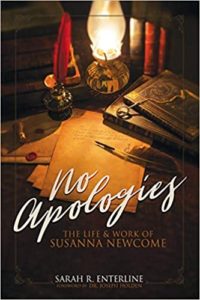
“There is nothing new under the sun”, wrote King Solomon in the book of Ecclesiastes (1:9). Thousands of years later, this is still the case as new thinkers trot out theories and ideas that are, in fact, old ideas with simply a different light shed on them. Modern apologists (meaning those who have entered the field since its revival about 60 years ago) owe most of their work to those who came before them. Occasionally, those in the past get remembered in a footnote or two, but what happens if a person who contributed to the field in the past was never acknowledged for their work in the first place? They become lost to history. This happened to many women in the field, not because women of the past were never interested in the intelligent side of the faith, but because they were denied a seat at the table of theological ideas for hundreds and hundreds of years, simply for being women. There have been many accounts throughout history of deep-thinking women of faith, yet until about ten years ago, the idea of women being Christian apologists was mostly unheard of. This is due to the fact that many in the past published anonymously, or under pseudonyms, or their works were simply ignored and not given the attention they deserved, simply because they were women in a field dominated by men…
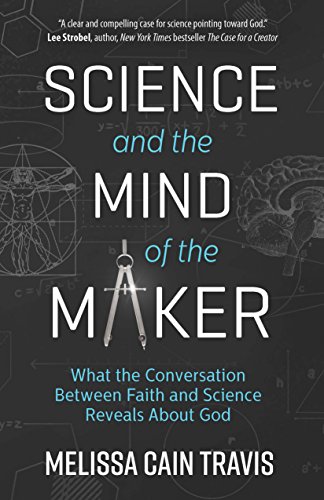
The question of cosmic origins and our place in the grand scheme of things has been debated for millennia. Why do we exist? Why does anything exist at all?
Today’s popular narrative, based on advancements in science, is that it all happened by natural, random processes. Melissa Cain Travis points to powerful evidence that the opposite is true—that cosmology, astronomy, biochemistry, and other disciplines strongly support what she calls “The Maker Thesis,” which explains the origin, rationality, and intricacy of nature and the human mind’s capacity to comprehend it.
Our universe is made up of numerous complex systems of order that both interact and coexist with each other as if in a carefully choreographed dance. Follow along on a fascinating journey about how the structure of nature and the mind of man resonate in ways that point to a Maker who fully intended the astounding discoveries being made in the natural sciences today.
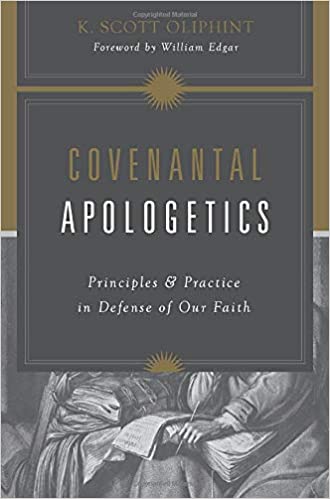
Defending the faith can be daunting, and a well-reasoned and biblically grounded apologetic is essential for the challenge. Following in the footsteps of groundbreaking apologist Cornelius Van Til, Scott Oliphint presents us with an introduction to Reformed apologetics as he sets forth the principles behind a distinctly “covenantal” approach. This book clearly explains the theological foundations of covenantal apologetics and illustrates its application in real-world conversations with unbelievers―helping Christians to boldly, knowledgeably, and winsomely proclaim the gospel.
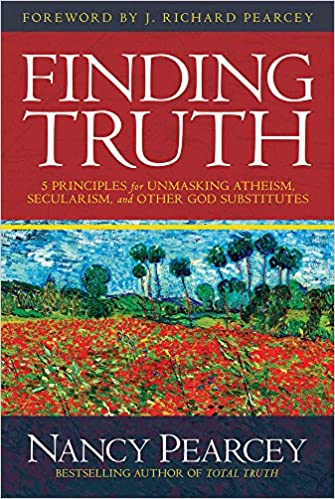
Don’t Think, Just Believe?
That’s the mantra in many circles today–whether the church, the classroom, the campus, or the voting booth.
Time for a Reality Check
Nancy Pearcey, bestselling and critically acclaimed author, offers fresh tools to break free from presumed certainties and test them against reality. In Finding Truth, she explains five powerful principles that penetrate to the core of any worldview–secular or religious–to uncover its deepest motivations and weigh its claims.
A former agnostic, Pearcey demonstrates that a robust Christian worldview matches reality–that it is not only true but attractive, granting higher dignity to the human person than any alternative.
Finding Truth displays Pearcey’s well-earned reputation for clear and cogent writing. She brings themes to life with personal stories and real-world examples. The book includes a study guide shaped by questions from readers, from teens to college professors. It is ideal for individual or group study.
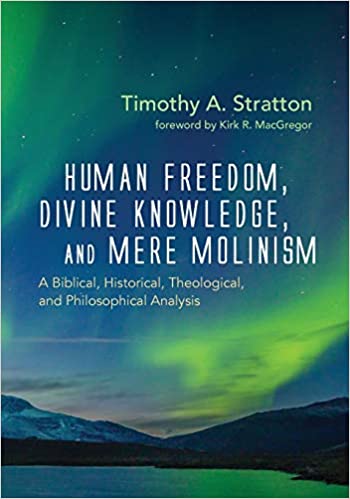
Does humanity possess the freedom to think and act, or are we always caused and determined to think and act—exactly how we think and act—by things outside of our control? If we are always causally determined to think and act by things outside of our control, then how can humans be genuinely responsible for any of our thoughts or following actions? However, if humanity is genuinely free and responsible for at least some of our thoughts and actions, then how can the Christian rationally affirm the doctrine that God is totally sovereign and predestines all things?
In Human Freedom, Divine Knowledge, and Mere Molinism, Timothy A. Stratton surveys the history of theological thought from Augustine to Edwards and reaches surprising historical conclusions supporting what he refers to as “limited libertarian freedom.” Stratton goes further to offer multiple arguments appealing to Scripture, theology, and philosophy that each conclude humanity does, in fact, possess libertarian freedom. He then appeals to the work of Luis de Molina and offers unique arguments concluding that God possesses middle knowledge. If this is the case, then God can be completely sovereign and predestine all things without violating human freedom and responsibility.
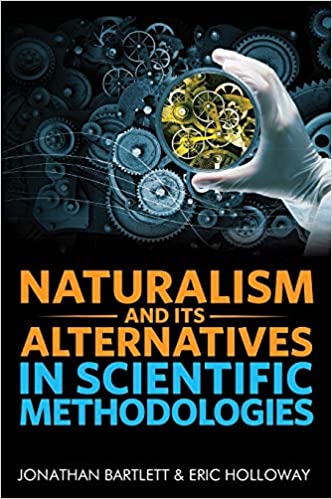
Many volumes have addressed the question of whether or not naturalism is a required part of scientific methodology. However, few, if any, go any further into the many concerns that arise from a rejection of naturalism. If methodological naturalism is rejected, what replaces it? If science is not naturalistic, what defines science? If naturalism is rejected, what is gained and what is lost? How does the practice of science change? What new avenues would be available, and how would they be investigated?
This volume is divided into three parts. The first part considers the question of methodological naturalism and its role in the demarcation problem – deciding what is science and what isn’t. The second part discusses the impacts that different boundaries have on scientific thought in a general way. Finally, the third part looks at how non-naturalistic methodologies can be beneficially incorporated into specific fields, and how in a few cases non-naturalistic methodologies have already been successfully incorporated into certain fields.
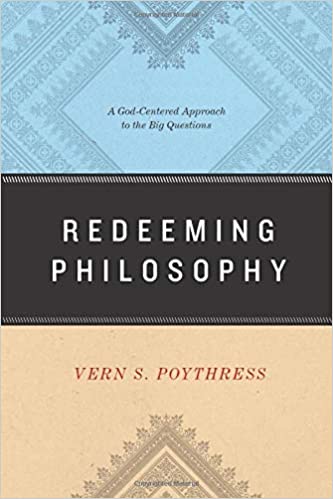
Who am I? Why am I here? Where do I find meaning?
Life is full of big questions. The study of philosophy seeks to answer such questions. In his latest book, prolific author Vern Poythress investigates the foundations and limitations of Western philosophy, sketching a distinctly Christian approach to answering basic questions about the nature of humanity, the existence of God, the search for meaning, and the basis for morality.
For Christians eager to engage with the timeless philosophical issues that have perplexed men and women for millennia, this is the place to begin.
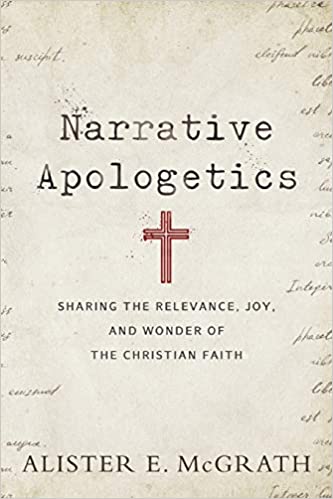
The Bible is a narrative–the story of God’s creation, humankind’s fall, and God’s plan of redemption. And it is filled with countless smaller stories that teach us about people, history, and the nature of God. It’s no surprise that God would choose to reveal himself to us in story–after all, he hardwired us for story. Despite this, we so often attempt to share our faith with others not through story but through systems, arguments, and talking points–methods that appeal only to our mind and neglect our imagination and our emotions.
In this groundbreaking book, scholar and author Alister McGrath lays a foundation for narrative apologetics. Exploring four major biblical narratives, enduring stories from our culture such as Tolkien’s The Lord of the Rings and Lewis’s The Chronicles of Narnia, and personal narratives from people such as Augustine of Hippo and Chuck Colson, McGrath shows how we can both understand and share our faith in terms of story.
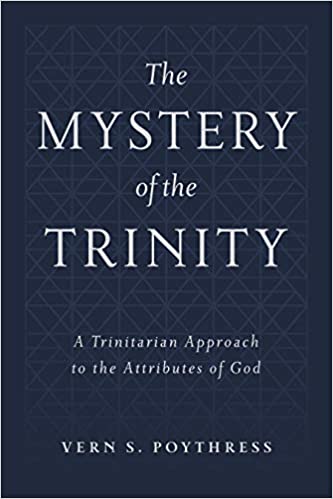
Starting with the doctrine of the Trinity, Vern Poythress addresses six challenges concerning the compatibility of God’s independence with his activities in the world. The eternal activities among the persons of the Trinity offer a foundation for God’s activities in the world. Alternative metaphysical frameworks for explaining God’s transcendence and immanence run the danger of overriding the truths of biblical revelation.
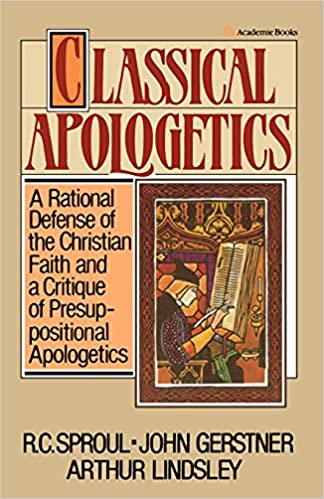
Must a person accept Christianity on faith alone, or is there a reasoned defense for being a Christian? The authors of this book hold that Christianity is eminently reasonable. The primacy of the mind in the Christian faith can be affirmed without denying the importance of the heart. This book embraces reason without rationalism, personal love without personalism, faith without fideism is our capacity to love Him. The book is divided into three parts. Section I is a prolegomenon dealing with the problems and methods of apologetics. Section II develops the theistic proofs and authority of Scripture. Section III is given over to a critique of presuppositionalism in apologetics, particularly with reference to the thought of Cornelius Van Til. Classical Apologetics will help the thoughtful Christian understand his or her faith better, and it will provide more solid grounds for sharing this faith with others.
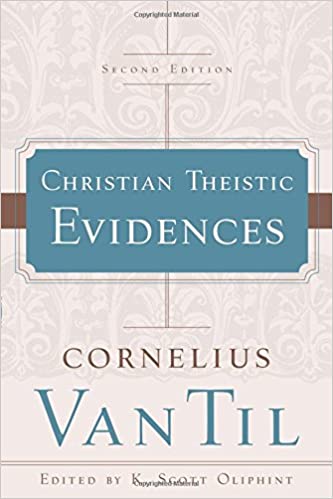
When defending Christianity, we often play by man’s rules, letting secular science and philosophy determine the cards we’re allowed to bring to the table. But can we effectively defend the primary authority of Scripture if we start with other sources of authority that relegate it to minor status from the outset?
K. Scott Oliphint provides a foreword and explanatory notes in this retypeset syllabus, originally from Cornelius Van Til’s famous Christian Evidences class at Westminster Seminary. Van Til argues for the defense of a pure, full-fledged Christianity, unadulterated by a scientific methodology founded on non-Christian assumptions. He offers us instead a Christian philosophy and methodology for defending the faith that presupposes the absolute authority of the triune God of Scripture.






